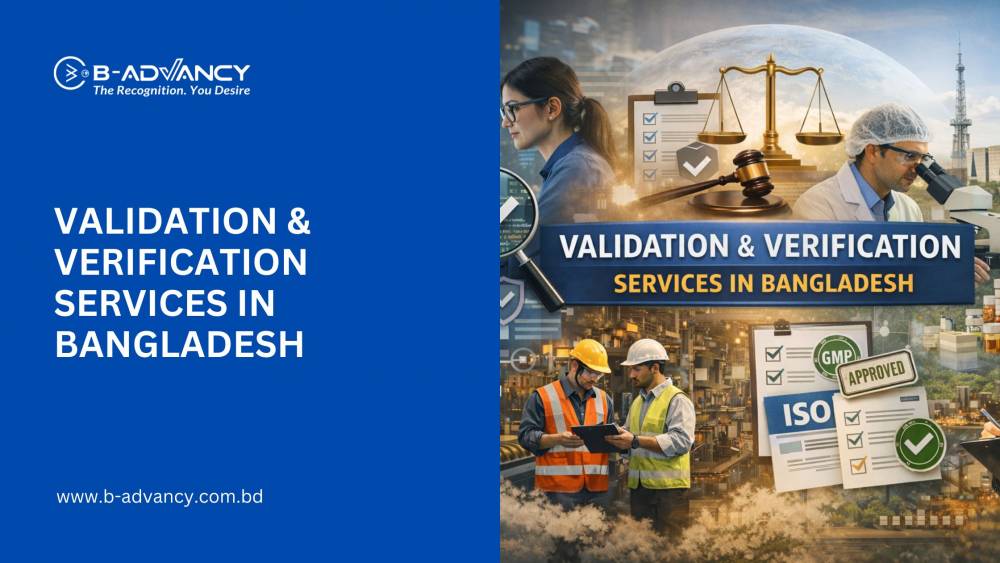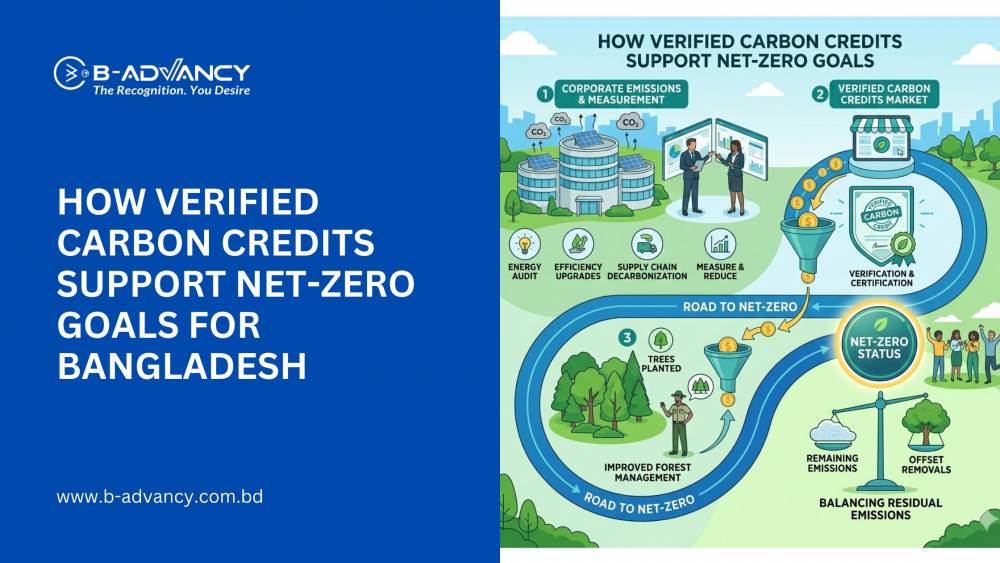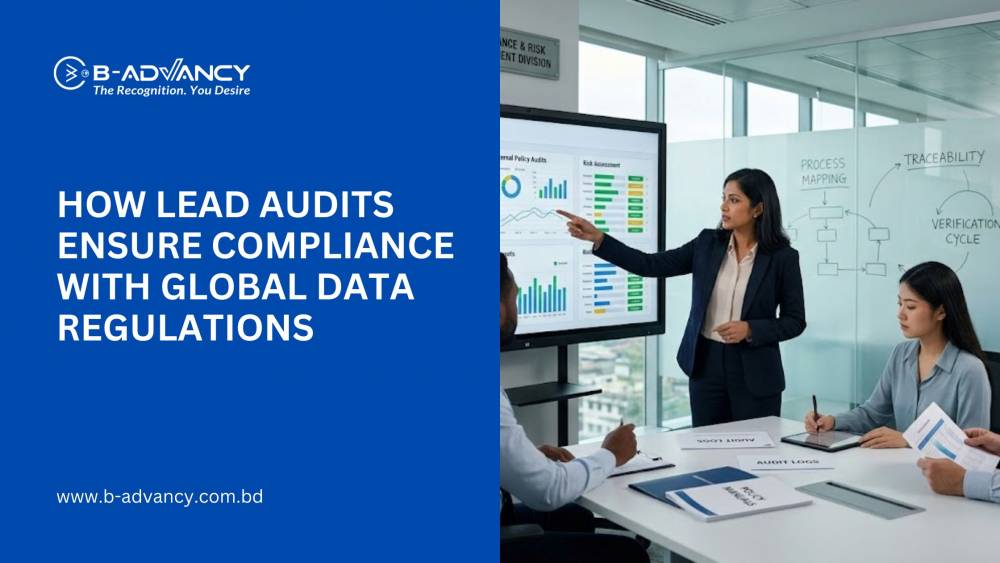Introduction:
In the intricate web of global environmental concerns, Greenhouse Gas (GHG) emissions stand as a critical focal point. Acknowledging the urgency of addressing these emissions, the Greenhouse Gas Verification Service in Bangladesh has become instrumental. This blog post seeks to provide an in-depth exploration of GHG verification services and certifications, emphasizing the relevance of ISO 14064 standards in the context of Bangladesh.
GHG Verification Services in Bangladesh: A Necessity Defined
As the nexus between environmental consciousness and corporate responsibility tightens, GHG verification services in Bangladesh emerge as an imperative for entities engaging in international trade, government bodies ensuring regulatory compliance, financial institutions assessing investment sustainability, and individuals navigating visa applications amid stringent environmental scrutiny.
GHG Verification Certification in Bangladesh: An Emblem of Compliance
The quest for GHG verification certification in Bangladesh encapsulates a commitment to environmental transparency and adherence to internationally recognized standards. This certification, aligned with ISO 14064 principles, validates an entity's efforts in accurate GHG accounting and reporting.
ISO 14064 - Greenhouse Gas Accounting and Verification: Blueprint for Accountability
ISO 14064 stands as the cornerstone in the framework of greenhouse gas accounting and verification. Its principles provide a systematic approach, ensuring the accuracy, completeness, and reliability of GHG data. In the context of Bangladesh, ISO 14064 serves as the guiding light, setting the stage for meticulous GHG verification processes.
Greenhouse Gas Verification in Bangladesh: Unveiling the Process
The verification process involves a meticulous electronic scrutiny of GHG emissions with the relevant issuing authority. This exhaustive process, in alignment with ISO 14064, ensures the veracity of reported emissions. Successful verification culminates in the issuance of a comprehensive certificate, a tangible testament to an entity's commitment to environmental responsibility.
Who Needs GHE Validation and Verification:
The imperative for Greenhouse Gas Emission (GHE) validation and verification extends across a spectrum of entities, each integral to the broader commitment to environmental responsibility. Businesses navigating international trade, where adherence to stringent environmental standards is paramount, find themselves at the forefront. Government agencies, charged with the enforcement of environmental regulations, leverage validation and verification to ensure compliance. Financial institutions, discerning sustainable investments and corporate responsibility, turn to these services for a comprehensive environmental risk assessment. Individuals, navigating the intricacies of visa applications and permit requirements, benefit from the credibility conferred by GHE validation and verification, aligning with the heightened environmental scrutiny prevalent today.
Benefits of Using the GHE Validation and Verification Service:
Authenticity Assurance: Ensures the credibility and accuracy of reported Greenhouse Gas Emissions (GHE) data.
Fraud Risk Reduction: Mitigates the risk of misinformation or manipulation of emission data, enhancing data integrity.
Simplified Processes: Streamlines import and export procedures by ensuring compliance with recognized environmental standards, facilitating smoother transactions.
Consumer Protection: Guarantees that products and services align with sustainable and environmentally conscious practices, safeguarding end-users.
How to Apply for GHG Validation and Verification: A Step-by-Step Guide
Contacting an Authorized Service Provider: Initiating the process by engaging with recognized GHG verification services in Bangladesh, ensuring compliance with ISO 14064 standards.
Providing Necessary Information: Furnishing detailed data, including the GHE number and issuing authority, to facilitate a thorough verification process aligned with ISO 14064.
Payment of Fees: Fulfilling the applicable fees associated with the verification process, considering it an investment in environmental responsibility.
Receiving the Certificate: The culmination of the process, obtaining the official certificate of verification, symbolizing the achievement of stringent environmental standards set by ISO 14064.
Additional Tips: Navigating the Landscape of Environmental Assurance
Document Safeguarding: Advocating for secure storage and preservation of the certificate of verification in compliance with ISO 14064 for future reference and audits.
Fee Transparency: Enhancing awareness regarding associated service fees, ensuring financial preparedness, and contributing to transparent transactions.
Choosing Reputable Service Providers: Encouraging stakeholders to opt for recognized and reputable GHG verification agencies, aligning with the stringent principles set by ISO 14064.
Alternatives to GHG Validation and Verification: Weighing the Options
Self-Verification: Companies can opt for internal processes aligning with ISO 14064 principles to validate their GHG emissions.
Private Investigators: Exploring the option of professional assistance for intricate verification procedures, ensuring compliance with ISO 14064 standards.
Conclusion:
In conclusion, the GHG Validation and Verification Service in Bangladesh, harmonized with ISO 14064, serves as a pivotal instrument in fostering environmental transparency and accountability. This post advocates for the meticulous selection of this service, underscoring its role in contributing to a sustainable future. By prioritizing the authenticity of GHG data in accordance with ISO 14064, businesses and individuals actively engage in the global effort to mitigate the adverse effects of climate change.





































































































































































































